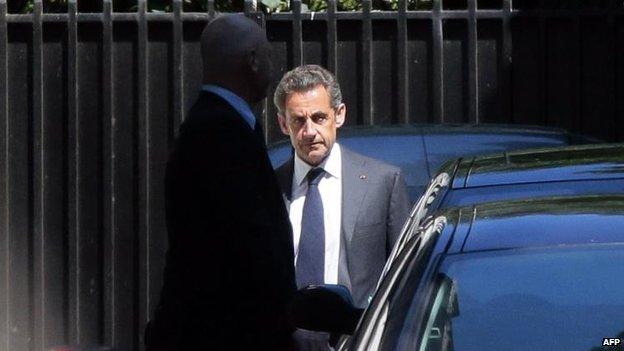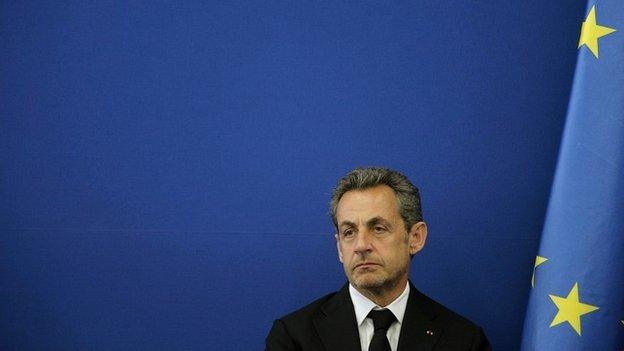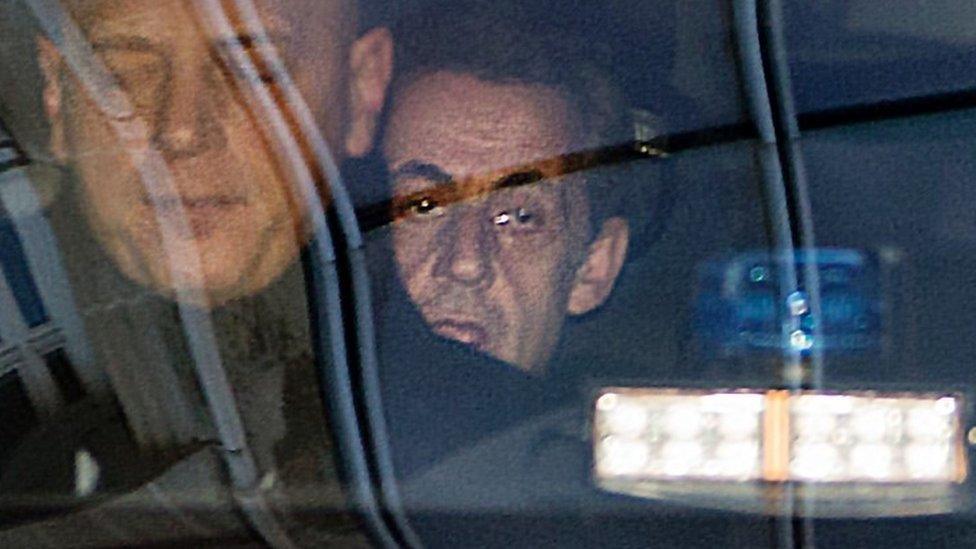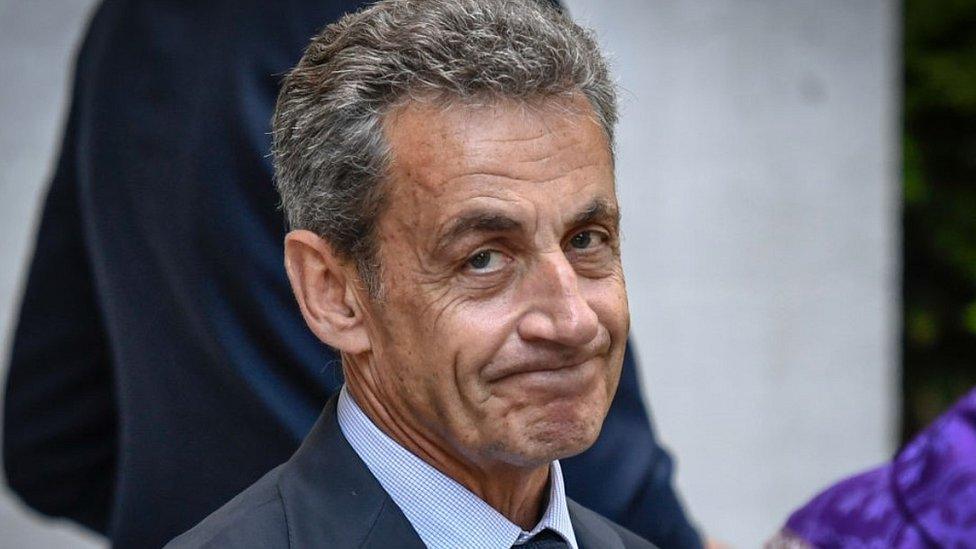Ex-President Nicolas Sarkozy: Case against me 'political'
- Published
Nicolas Sarkozy: "I want to say the truth"
Ex-President Nicolas Sarkozy has said the French justice system is being used for "political ends" after he was placed under formal investigation for influence peddling.
In a TV interview, Mr Sarkozy denied committing any unlawful act.
He said the "grotesque" case against him was designed to humiliate, and harm his reputation.
It is alleged Mr Sarkozy sought insider information from a judge about an inquiry into illegal campaign funding.
Mr Sarkozy was detained on Tuesday for questioning - the first time a former French head of state has been held in police custody.
He is hoping to challenge again for the presidency in 2017 and the allegations are seen as a blow to his hopes of returning to office.
'Deeply shocked'
The interview with the ex-president, which was recorded for TF1 television and Europe 1 radio, was broadcast on Wednesday evening.

Nicolas Sarkozy: "I never committed an act against the Republic's principles"
In it Mr Sarkozy said: "The situation is sufficiently serious to tell the French people where we stand on the political exploitation of part of the legal system today.
"I say to all those who are listening or watching that I have never betrayed them and have never committed an act against the Republic's principles and the rule of law."
Mr Sarkozy said he was "deeply shocked" by the investigation, and he accused the Syndicat de la Magistrature trade union of seeking to destroy him.
"Everything is being done to give me a reputation that is not true," he said.
Mr Sarkozy added: "In our country, which is the country of human rights and the rule of law, there are things that are being organised.
"The French need to know what they are and, in conscience and freedom, judge what to make of it."
He also expressed his anger at the way he was summoned, saying there "was an intention to humiliate" him with the formal detention.

Analysis: By Hugh Schofield, BBC News, Paris
This was a classic Sarkozy counter-offensive. Barely able to contain his anger, he launched a blistering attack on the forces that he said were trying to bring him down.
The former president is convinced there is a vendetta against him being run by left-wing elements in the justice system. In particular he has in mind one of the two judges in charge of his case, Claire Thepaut. She is a member of a left-wing magistrates' trade union which was openly hostile to Mr Sarkozy when he was president.
Less blatantly, but by implication, Mr Sarkozy also attacked the Socialist government for at the very least knowing of the "campaign" against him, in particular of phone-taps of conversations between himself and his lawyer.
Over and again he repeated the phrase "Is it normal?" to describe his handling by the judges. He wanted the same treatment as any other French citizen, he said, but he was not getting it.

Earlier, Prime Minister Manuel Valls insisted the investigation was being carried out independently of the Socialist government.
Talking to French TV, he said "no-one is above the law" but added that it was important to remember "there is the presumption of innocence".
Gaddafi claims
Mr Sarkozy was released from custody around midnight (22:00 GMT Tuesday) after appearing in court in Paris.
When a suspect is placed under formal investigation, they are then examined by a judge, who determines whether there is sufficient evidence for the suspect to be charged.
The step often, but not always, leads to trial. Influence-peddling can be punished by up to 10 years in prison and a fine of 150,000 euros (£120,000; $205,000).
Investigators have been looking into allegations that Mr Sarkozy, 59, who was president from 2007 to 2012, promised a prestigious role in Monaco to senior prosecutor Gilbert Azibert in exchange for information about the investigation into illegal campaign funding. Mr Azibert was never given the job.
The inquiry into funding is looking into whether Mr Sarkozy received illegal donations for the 2007 election campaign from late Libyan leader Muammar Gaddafi.
Mr Sarkozy's lawyer, Thierry Herzog, and Mr Azibert have also been placed under formal investigation.

Investigations into Nicolas Sarkozy
July 2014: Placed under formal investigation on suspicion of peddling influence to obtain details from a magistrate about legal proceedings against him in 2013.
October 2013: A criminal investigation into allegations he solicited secret campaign financing in 2007 from France's richest woman, Liliane Bettencourt, is dropped.
April 2013: Judges open an inquiry into allegations that the Gaddafi regime helped finance his 2007 election campaign.
Mr Sarkozy was also named as a witness in February 2014 in an investigation into funding for Edouard Balladur's unsuccessful presidential bid in 1995.
A number of other inquiries are under way into wrongdoing by senior officials during his presidency, in which he has not figured directly.

- Published1 July 2014

- Published29 March 2018

- Published8 January
